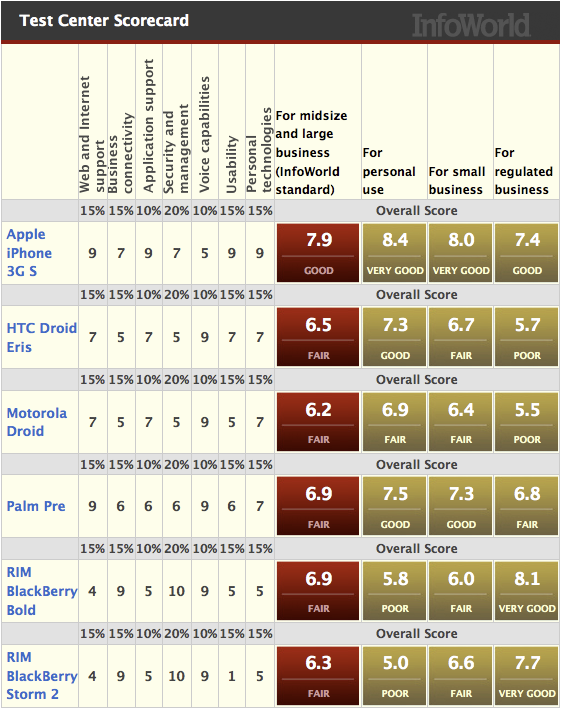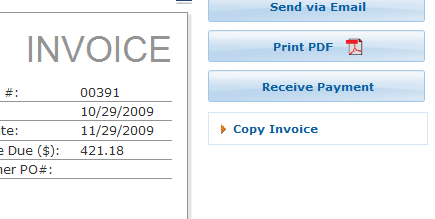 One of the reasons that I have always loved being in the web business is because things constantly change. When I first got online in 1993, we used bulletin board systems and monochrome monitors. When I got my first tech job in 1996, everything was about corporate Windows networks and preparing for Y2K (remember that?). When I started in ecommerce in 2000, it was all about building tech tools from scratch because very few existed at a price point for small to mid-sized businesses.
One of the reasons that I have always loved being in the web business is because things constantly change. When I first got online in 1993, we used bulletin board systems and monochrome monitors. When I got my first tech job in 1996, everything was about corporate Windows networks and preparing for Y2K (remember that?). When I started in ecommerce in 2000, it was all about building tech tools from scratch because very few existed at a price point for small to mid-sized businesses.
Today, the web is about marketing. And one of the biggest influences in that shift has come from the world of search. Findability is key, above all else. And that means the topic of search engine optimization is one that every web professional has to be at least a little familiar with, even if it’s not your core business.
Every single week I have people coming to me to ask for help with their SEO, and the cold hard truth is that most of them have no idea what they really need, and are not prepared for what it’s going to cost (in either time or money) to get what they think they want. As a result, these entrepreneurs are often tempted by unscrupuoulous parasites who troll the internet looking for hapless victims who can quickly and easily be separated from their money.
In his recent blog article, In SEO, There’s No Such Thing As A Guarantee, Brand5 CEO Mark Faggiano takes these spammers to task and issues a warning to those who might be tempted to bite. Mark’s point is that, if you get an email from someone “guaranteeing” you top ranked SEO results, it’s junk and don’t buy into their promises.
For anyone (legitimate) who works in this field, this is often the very first conversation we have with prospective clients. Why? Because such “guarantees” are not possible. There is too much outside of any one person’s control to be able to make promises like this. Things change too rapidly and there is no way to ensure that what worked yesterday will work tomorrow.
Of course, this is also the reason that many people get sticker shock when they talk to a legitimate SEO about doing this type of work: it’s time consuming, and so it is often very expensive. Moreso than many entrepreneurs are ready, willing or able to pay.
So when I start working with a client, my first meeting with them is about understanding what truly makes sense, and figuring out a plan forward. I start with a few basic questions when it comes to developing a plan.
What are your products or services?
Not all businesses need great SEO to get the effect that they need. In fact, some will be better off putting those resources in other places entirely, because their customers are just not internet-centric. Another thing to consider is that, the only way people can find you is if your product or service is something that your customers can describe/articulate themselves and would think to look online for a solution.
For some businesses that is obvious, but for innovative products or services, sometimes keyword-based solutions are the wrong way to go because your customers may not have any idea that you’ve even got a solution or what you’ve named it.
Do you have an automated sales process or a hands-on one?
If you have a product that people can find, signup and use without ever having to interact with a live person (such as WorkingPoint), then SEO has great value. If you are someone who provides a customized service (such as a consultant), where you have to scope the job, do some research, have some meetings and evaluate your potential contribution before setting a price, then there are other areas where your efforts are going to garner better return — starting with some targeted social media.
Your prospective customers need to be able to research you online by name, but that’s probably not the way they are going to find you in the first place. So, again, heavy investments in getting top tier SEO results are probably better allocated elsewhere.
Who are your customers and where do they spend their time?
This is the final lynchpin in developing a strategy, because you have to be where your customers are. If your customers are corporate clients who have an internal purchasing department, then you need to spend time using their channels to get on their approved buyer list — their process usually preclude online research until it’s a last resort.
Not all customers are available via the same channels. You need to know who your customers are to figure out how to find them. And then figure out what internet marketing channels make the most sense.
What’s the state of your content?
As a content strategist, this is actually my last step once all of the above have been examined. What kind of content you need on your site will depend on your product/service, your sales process and your customer base. You can have the greatest product in the world, but if you can’t articulate it in a compelling way on your site, you will never see any conversion.
Conversely, you could have tons of great content, but if it is not organized in an intuitive and meaningful way for your customers, and if it’s not focused enough to have findable keyword value, then you could be wasting your time and effort generating content that is not serving your goal.
I start off most of my content workshops by telling attendees, “Don’t drink the SEO Kool-Aid!” Too many people think it’s a silver bullet that is going to make or break their business. And sure, it can be a big help, and when someone comes looking for you, you absolutely need to be findable. Twenty years ago businesses did that buy being in the phone book. Today we do it by being online.
But how much time and effort you should really be sinking into your SEO is a different question, and it does not have a straight forward answer. So beyond Mark’s original warning against those who offer you guarentees, I’ll toss out a second warning: not everyone needs to be #1 on the search engines. And the truth is, not everyone can be. Developing an appropriate web presence is unique to every business. Don’t let anyone sell you on the one-size-fits all fantasy.
Alora Chistiakoff is an entrepreneur, content strategist and project manager who has been developing online business and technology for startups for more than a decade. She co-owns The Indigo Heron Group, Inc., a content strategy firm in Austin, Texas.
 The best way to make the most out of this year-end is to get a great start on next year. Since you can’t start something until you know where you want to go, it’s time to set some goals.
The best way to make the most out of this year-end is to get a great start on next year. Since you can’t start something until you know where you want to go, it’s time to set some goals. One of the reasons that I have always loved being in the web business is because things constantly change. When I first got online in 1993, we used bulletin board systems and monochrome monitors. When I got my first tech job in 1996, everything was about corporate Windows networks and preparing for Y2K (remember that?). When I started in ecommerce in 2000, it was all about building tech tools from scratch because very few existed at a price point for small to mid-sized businesses.
One of the reasons that I have always loved being in the web business is because things constantly change. When I first got online in 1993, we used bulletin board systems and monochrome monitors. When I got my first tech job in 1996, everything was about corporate Windows networks and preparing for Y2K (remember that?). When I started in ecommerce in 2000, it was all about building tech tools from scratch because very few existed at a price point for small to mid-sized businesses.
 Entrepreneur-turned-VC,
Entrepreneur-turned-VC, 
 In the world of tech startups there is a common phenomenon: developer entrepreneurs who can write great apps, build slick sites and develop cool technology… but who forget that the work of finding and acquiring a paying customer is a whole separate discipline. It’s what we often refer to as
In the world of tech startups there is a common phenomenon: developer entrepreneurs who can write great apps, build slick sites and develop cool technology… but who forget that the work of finding and acquiring a paying customer is a whole separate discipline. It’s what we often refer to as 

 Earlier this year, my husband and I took a small business workshop offered by a local certified public accountant. He covered the ins-and-outs of both starting and growing a small business, starting with assessing the pros and cons of each type of corporate structure: sole proprietorship, limited liability company, corporation and various partnerships. His (relatively tongue-in-cheek) advice was: “Whatever you do, avoid a partnership!”
Earlier this year, my husband and I took a small business workshop offered by a local certified public accountant. He covered the ins-and-outs of both starting and growing a small business, starting with assessing the pros and cons of each type of corporate structure: sole proprietorship, limited liability company, corporation and various partnerships. His (relatively tongue-in-cheek) advice was: “Whatever you do, avoid a partnership!”
